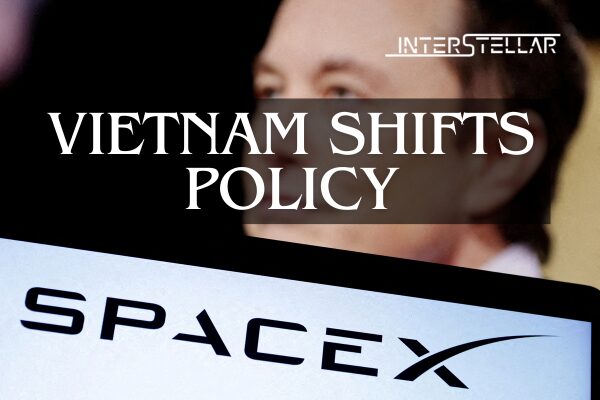Vietnam Clears Path for Starlink Amid US Trade Concerns
Vietnam is set to introduce new regulations that would allow Elon Musk’s Starlink to operate in the country while maintaining full ownership of a local subsidiary, according to a draft resolution. This move signals a shift in policy and follows prolonged negotiations with SpaceX, a government official confirmed.
A Strategic Shift in Policy
Vietnam previously blocked SpaceX from entering its market due to a ban on foreign control of satellite internet providers. However, a new draft resolution—expected to be approved by parliament in an extraordinary session on Wednesday—introduces a pilot scheme permitting full foreign ownership for internet providers with low-orbit satellite networks. This scheme would run until the end of 2030, with individual projects requiring approval from the prime minister.
The sudden policy change is seen as an “olive branch” to SpaceX, potentially aimed at easing tensions with the US amid concerns over tariffs from President Donald Trump. A person familiar with the matter suggested that Vietnam’s decision reflects a willingness to engage in “transactional diplomacy” with the Trump administration.
Starlink’s Potential in Vietnam
With a population of nearly 100 million, Vietnam presents a significant market for Starlink. SpaceX has been expanding its supplier network in the country, and the Vietnamese government has stated that the company aims to invest $1.5 billion in Vietnam.
If Starlink attracts a large number of Vietnamese subscribers, it could help reduce Vietnam’s substantial trade surplus with the US. In 2023, the country recorded a $123.5 billion surplus—the fourth highest among US trading partners. A reduction in this imbalance could help Vietnam avoid potential US tariffs.
US Tariff Threats and Vietnam’s Response
Last Thursday, Trump instructed his team to develop reciprocal tariffs on countries that tax US imports, with a deadline of April 1. His aides have indicated that nations with large trade imbalances—including Vietnam—will face close scrutiny.
Given its heavy reliance on exports to the US, Vietnam is vulnerable to new tariffs. The country has attracted numerous manufacturers relocating from China following Trump’s 2018 tariffs on Chinese goods. To mitigate risks, Vietnam has also proposed increasing imports of US agricultural products and is exploring additional trade adjustments.
As Vietnam opens its market to Starlink, the move could serve both economic and diplomatic purposes—strengthening ties with the US while addressing trade imbalance concerns.
With inputs from Reuters


